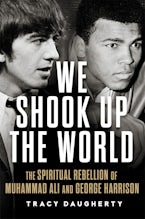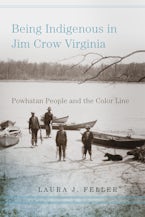Search Results
Showing results 1-10 of 2348
Filter Results OPEN +

Here Today
Oklahoma’s Ghost Towns, Vanishing Towns, and Towns Persisting against the Odds
Whether visiting ghost towns or small towns that still draw on the power of rural resilience to survive and even thrive, Here Today offers a rare chance to travel through the state’s history before its remnants may be gone tomorrow. Representing the extraordinary extent of Schmidt’s research, legwork, and mining of archives and data sources, the book preserves for all time a vanishing vision of Oklahoma.
The Washington Apple
Orchards and the Development of Industrial Agriculture
Today, as this book reveals, the apple industry continues to evolve in response to shifting consumer demands and accelerating climate change. Yet, through it all, the Washington apple maintains its iconic status as Washington’s most valuable agricultural crop.
Euripides' Hippolytus
A Commentary for Students
Euripides’ Hippolytus is a fascinating play about passion, innocence, rejection, betrayal, and the tragic breakdown of a family. This commentary, designed for intermediate and advanced students of ancient Greek, helps readers understand and fully appreciate this classic tragedy in all its rich complexity.
We Shook Up the World
The Spiritual Rebellion of Muhammad Ali and George Harrison
We Shook Up the World offers a new, intimate perspective on two outsize figures in the nation’s and the world’s cultural history, and a new understanding of their unique contributions to the consciousness of their time and ours.
Silicon Valley and the Environmental Inequalities of High-Tech Urbanism
What do “nature” and “place” mean, and who gets to define these terms? Key to Heppler’s work is the idea that these questions reflect and determine what, and who, matters in any conversation about the environment. Silicon Valley and the Environmental Inequalities of High-Tech Urbanism vividly traces that idea through the linked histories of Silicon Valley and environmentalism in the West.
The Lion at Dawn
Forging British Strategy in the Age of the French Revolution, 1783–1797
The Lion at Dawn opens a new, critical perspective on the emergence of modern Britain and its empire, and on its early effort to create a stable and peaceful international system, an ideal debated to this day.
The U.S. Supreme Court's Democratic Spaces
This timely study of how the Supreme Court building shapes Washington as a space and a place for political action and meaning yields a multidimensional view, and a deeper appreciation, of the ways that our physical surroundings manifest who we are as a people, and what we value as a society.
Hollywood's Imperial Wars
The Vietnam Generation and the American Myth of Heroic Continuity
Tracing what Prats calls the “anxiety of legacy” through the films of the World War II and post–Vietnam War periods, this book offers a new way of looking at both the Hollywood war movie and the profound cultural shifts it reflects and refracts.
Being Indigenous in Jim Crow Virginia
Powhatan People and the Color Line
Spanning a century of fraught history, Being Indigenous in Jim Crow Virginia describes the critical strategic work that tidewater Virginia Indians, descendants of the seventeenth-century Algonquian Powhatan chiefdom, undertook to sustain their Native identity in the face of deep racial hostility from segregationist officials, politicians, and institutions.
For the Birds
American Ornithologist Margaret Morse Nice
For the Birds gives Nice her due recognition, lending compelling insight into her activism promoting conservation and preservation, her field methods, and the role of women in the history of science, particularly in ornithology. Nice’s life acts as a looking glass into the various challenges faced by fellow female pioneers, their resolve, and their contributions.

Here Today
Oklahoma’s Ghost Towns, Vanishing Towns, and Towns Persisting against the Odds
Whether visiting ghost towns or small towns that still draw on the power of rural resilience to survive and even thrive, Here Today offers a rare chance to travel through the state’s history before its remnants may be gone tomorrow. Representing the extraordinary extent of Schmidt’s research, legwork, and mining of archives and data sources, the book preserves for all time a vanishing vision of Oklahoma.
The Washington Apple
Orchards and the Development of Industrial Agriculture
Today, as this book reveals, the apple industry continues to evolve in response to shifting consumer demands and accelerating climate change. Yet, through it all, the Washington apple maintains its iconic status as Washington’s most valuable agricultural crop.
Euripides' Hippolytus
A Commentary for Students
Euripides’ Hippolytus is a fascinating play about passion, innocence, rejection, betrayal, and the tragic breakdown of a family. This commentary, designed for intermediate and advanced students of ancient Greek, helps readers understand and fully appreciate this classic tragedy in all its rich complexity.
We Shook Up the World
The Spiritual Rebellion of Muhammad Ali and George Harrison
We Shook Up the World offers a new, intimate perspective on two outsize figures in the nation’s and the world’s cultural history, and a new understanding of their unique contributions to the consciousness of their time and ours.
Silicon Valley and the Environmental Inequalities of High-Tech Urbanism
What do “nature” and “place” mean, and who gets to define these terms? Key to Heppler’s work is the idea that these questions reflect and determine what, and who, matters in any conversation about the environment. Silicon Valley and the Environmental Inequalities of High-Tech Urbanism vividly traces that idea through the linked histories of Silicon Valley and environmentalism in the West.
The Lion at Dawn
Forging British Strategy in the Age of the French Revolution, 1783–1797
The Lion at Dawn opens a new, critical perspective on the emergence of modern Britain and its empire, and on its early effort to create a stable and peaceful international system, an ideal debated to this day.
The U.S. Supreme Court's Democratic Spaces
This timely study of how the Supreme Court building shapes Washington as a space and a place for political action and meaning yields a multidimensional view, and a deeper appreciation, of the ways that our physical surroundings manifest who we are as a people, and what we value as a society.
Hollywood's Imperial Wars
The Vietnam Generation and the American Myth of Heroic Continuity
Tracing what Prats calls the “anxiety of legacy” through the films of the World War II and post–Vietnam War periods, this book offers a new way of looking at both the Hollywood war movie and the profound cultural shifts it reflects and refracts.
Being Indigenous in Jim Crow Virginia
Powhatan People and the Color Line
Spanning a century of fraught history, Being Indigenous in Jim Crow Virginia describes the critical strategic work that tidewater Virginia Indians, descendants of the seventeenth-century Algonquian Powhatan chiefdom, undertook to sustain their Native identity in the face of deep racial hostility from segregationist officials, politicians, and institutions.
For the Birds
American Ornithologist Margaret Morse Nice
For the Birds gives Nice her due recognition, lending compelling insight into her activism promoting conservation and preservation, her field methods, and the role of women in the history of science, particularly in ornithology. Nice’s life acts as a looking glass into the various challenges faced by fellow female pioneers, their resolve, and their contributions.











